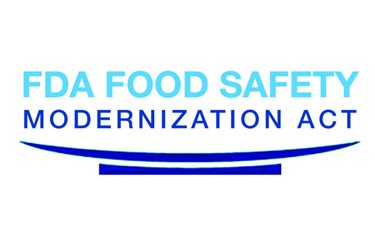How The FSMA Is Giving The FDA Some Teeth

By Bob Johns

With parts of the act already in place, the FDA is ready to take the next step in the regulatory change process.
I had the opportunity to listen to Jeff Kronenberg of the University of Idaho speak at Process Expo this year, as he discussed the coming Food Safety Modernization Act (FSMA) regulatory changes and how to comply with the changes.
FSMA is exactly what it seems, an attempt to modernize FDA regulations that had not been significantly updated since 1938. The act takes a risk-based approach to food safety management, which means industries or products that have outbreaks will become more of a compliance target. Some of the industries most greatly affected will be ones with recent outbreaks like in pre-packaged lettuce or salads and peanut butter. By focusing on industries with the greatest risk, the agency hopes to maximize its efforts. According to Kronenberg, the FDA states, the vision of FSMA is prevention — preventing food safety problems before they occur, rather than reacting to problems when they happen.”
Kronenberg notes the most impacted players are:
- Farmers
- Food processors
- Transporters
- Importers
- Laboratories
- Third-party auditing organizations
- Foreign food processors
- Foreign governments
- Regulators
These players need to be aware of the current impact of FSMA and the upcoming regulatory changes.
The FDA already has new powers under guidelines that took effect in January 2011, Kronenberg says. They have mandatory recall authority, administrative detention, whistle blower protection, enhanced record access, and modification to the reportable registry. From detaining shipments that represent a known hazard to protecting workers who bring negligence to the attention of superiors or the FDA, these new powers are designed to give some teeth to the FDA, who previously lacked many enforcement capabilities.
Additionally, facilities now have biennial registration, so make sure you are up to date. Registrations of facilities can be suspended, inspections have been intensified, with the obligatory fee increase, foreign food facilities can be inspected, and the FDA can certify imports. With nearly half of our food coming from foreign sources, Konenberg notes that it was essential to have the new regulations include foreign processing facilities.
Whistleblowers Are Better Protected
Another key to this regulation is the whistleblower protection section. According to Konenberg, “The employee has the right to report FSMA/FD&CA violations to the employer or authorities with no retribution, discrimination, or loss of job.” Additionally, there only needs to be a “reasonable belief” that there is a violation, he says. If there is retribution, the employer will face possible investigation from OSHA, be forced to reinstate the employee with all previous benefits, and pay for any legal fees the employee may have incurred.
The employee needs to follow a certain process, also. The employee must report the violation to the appropriate agency, the employer, or federal or state government. The employee can refuse to participate in suspect activities without fear of retribution listed earlier.
All employees, from the CEO to the maintenance crew, need to be diligent in compliance with the upcoming FSMA regulations in addition to all safety and processing guidelines.
Look for part 2 coming up, where we discuss the upcoming FSMA regulations that have yet to be implemented.
